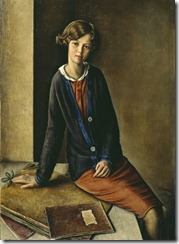 I’d had a wild day but was on-time, no…early!…for a play that my daughter’s friend was in. I parked the car, opened the door, and—“Oh shoot! We were going to pick her up a little gift for after the play.”
I’d had a wild day but was on-time, no…early!…for a play that my daughter’s friend was in. I parked the car, opened the door, and—“Oh shoot! We were going to pick her up a little gift for after the play.”
We climbed back in the car and drove to a nearby store. We grabbed a little something, then I checked out at the cash register and swiped my debit card. “Do you want cash back?” asked the cashier.
“No thanks,” I answered, stuffing my card back in my wallet.
I was rushing out the store with my daughter in tow when she asked, “Mama! Why? Why didn’t you?”
“Why didn’t I what?”
“Why didn’t you want cash back?”
“Oh honey. It’s not like free cash. It’s like…well, it’s Mama’s and Daddy’s money. But it’s at the bank. And so, the store just…well, they…they get the bank to send over money…”
“How?”
“Well, it’s electronic! Yes. So….well…”
Duhhhhh.
My right brain had settled into play-watching, artsy mode and my left brain didn’t have a prayer. I told her it was an excellent question, but we were in a hurry so we’d talk about it later.
And we will. Because I certainly don’t want her to think that the Target hands out free money. But that wasn’t the moment where I was going to be able to connect with her. Not in a raging hurry and with a subject I’m not very knowledgeable about in the first place.
I’m like this with my writing, too. Some days it’s really difficult for me to write particular scenes—I’m just not feeling it.
Usually I can just write my first draft straight through. But sometimes I run into a block. For me, it’s better to just open another Word document, save it under a scene description, and write the scene I’m in the mood to write.
Fortunately, most books have as many different types of scenes as there are moods.
Am I in a melancholy, thoughtful mood? I’ll work on an emotionally-moving scene. Feeling energized? An action sequence. Analytical and precise? Work on revisions.
I definitely don’t have the luxury of waiting on my Muse to inspire me. Actually, my Muse and I aren’t speaking to each other. But there’s no reason I can’t write something that I can put more enthusiasm into.
It’s cookie week at the Mystery Lovers’ Kitchen. If you pop over, you’ll find my recipe for a no-cook chocolate cookie. I’m Riley over at the Mystery Kitchen.





